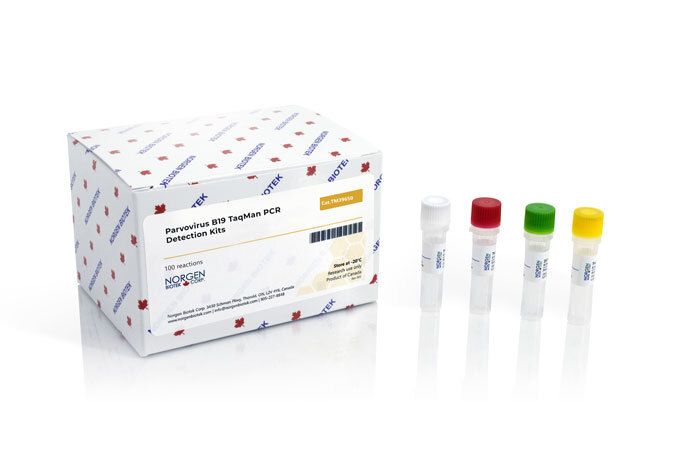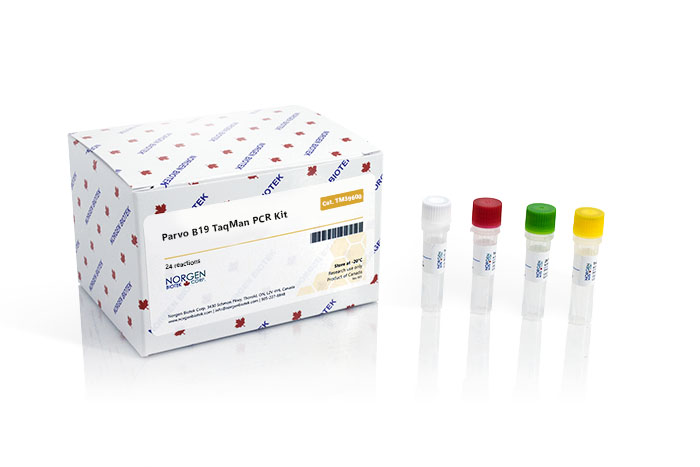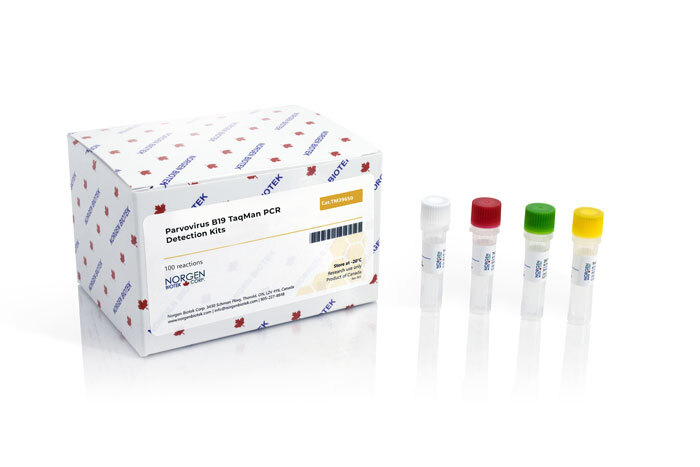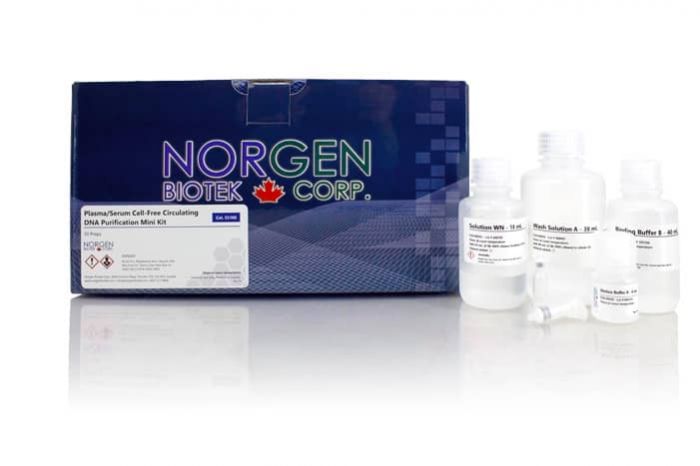Parvovirus B19 TaqMan PCR Detection Kits

For research use only and NOT intended for in vitro diagnostics.
Parvovirus B19 TaqMan PCR Detection Kits
Register today to receive an exclusive 15% off* on your first order.
Features and Benefits
- Detection kits for the Parvo B19
- CE-IVD marked version available for in vitro diagnostic use
- Available in TaqMan format for analysis
Parvovirus B19 was the first known human virus in the family of Parvoviruses. B19 is a non-enveloped, icosahedral virus that contains a single-stranded linear DNA genome. It is classified as an erythrovirus because of its capability to invade red blood cell precursors in the bone marrow. B19 virus causes a childhood rash called fifth disease or erythema infectiosum which is commonly called “slapped cheek” syndrome due to the appearance of erythema across the cheeks. The virus is primarily spread by infected respiratory droplets, but some cases of blood-borne transmission have been reported. Parvovirus infection in pregnant women is associated with hydrops fetalis due to severe fetal anemia, sometimes leading to miscarriage or stillbirth. The risk of fetal loss is about 10% if infection occurs before week 20 of pregnancy. There is also some evidence that intrauterine Parvovirus B19 infection leads to developmental abnormalities in childhood. Due to the serious nature of the virus, methods for its rapid diagnosis are desirable.
Click to expand options
- Ready to use format, including Master Mix for the target and PCR control to monitor for PCR inhibition and validate the quality
- Specific Primer and Probe mix for the pathogen/virus/viroid of interest
- Primer and Probe mix
- Positive and negative control to confirm the integrity of the kit reagents
- Specific Primer/Probe mix and Positive Control for the pathogen/virus/viroid of interest
- Nuclease-free water
- Can be used together with Norgen’s PCR Master Mix (#28007) or customer supplied master mix
Details
Supporting Data
TaqMan PCR Kit - Figure 1. Example of TaqMan PCR Positive result. Both PCR signals above the baseline from FAM and HEX channel indicate the successful PCR.
TaqMan PCR Kit - Figure 2. Example of TaqMan PCR Negative result. No target DNA was detected in FAM channel but amplification signal from HEX indicates the successful PCR.
TaqMan PCR Kit - Figure 3. Example of TaqMan PCR inhibition result. No signal from both FAM and HEX channel was detected. It is suggested to repeat the sample preparation using recommended kit for DNA purification.
Storage Conditions and Product Stability
All kit components can be stored for 2 years after the date of production without showing any reduction in performance.
All kit components should be stored at -20°C upon arrival. Repeated thawing and freezing (> 2 x) of the Master Mix and Positive Control should be avoided, as this may affect the performance of the assay. If the reagents are to be used only intermittently, they should be frozen in aliquots.
| Component | Cat. TM39650 (100 preps) | Cat. TM39610 (100 preps) |
|---|---|---|
| MDx TaqMan 2X PCR Master Mix | 2 x 700 μL | - |
| Parvovirus B19 Primer & Probe Mix | 280 μL | 280 μL |
| Parvovirus B19 Positive Control | 150 μL | 150 μL |
| Nuclease-Free Water (Negative Control) | 1.25 mL | 1.25 mL |
| Product Insert | 1 | 1 |



